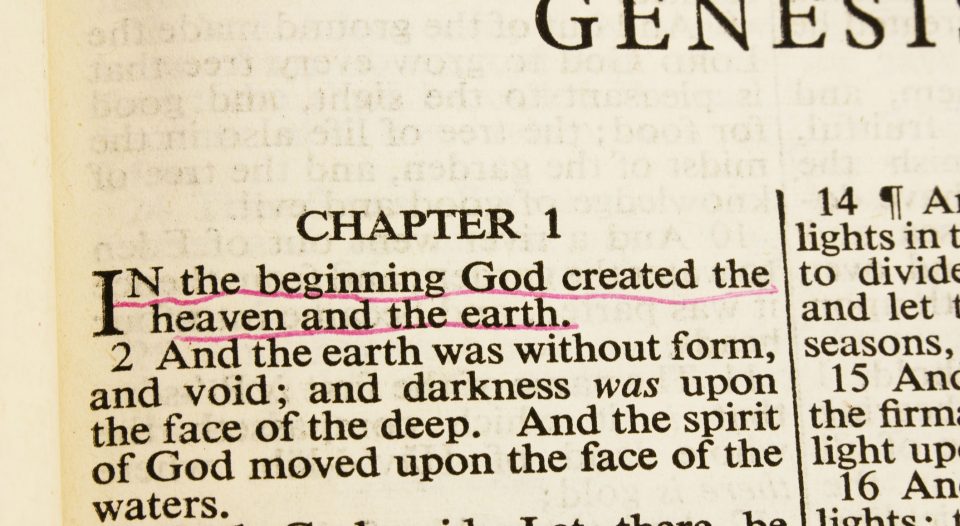Lectionary for June 4, 2023
The Holy Trinity
First Sunday after Pentecost
Genesis 1:1–2:4a; Psalm 8;
2 Corinthians 13:11-13; Matthew 28:16-20
Recently my father-in-law and I built an office for my wife in our basement. We erected walls, insulated, installed drywall, painted and ran electricity conduits. Then I carried down, in several sections, the giant desk, bookshelves, office chair and boxes of books that my wife would need to run her justice-training and her diversity, equity and inclusion businesses out of our home.
Having created the space and filled it with all the necessary components for office life, I’m overcome with excitement and can’t wait to see what Sarah does with it as she equips congregations and individuals for the daily, practical work of justice. I wonder if that sense of excitement and anticipation is what God felt in this week’s lectionary texts.
Genesis 1 presents an orderly account of neither the beginning nor the end of God’s creation. Bear with me for a little bit of Hebrew grammar. The opening phrase of the Bible is in construct form, something like a prepositional phrase. That is to say, it is not a discrete phrase, “In the beginning when God created the heavens and earth,” but a descriptive phrase introducing the hearer/reader to where we are in the process, i.e., “At the beginning of God’s creating the heavens and earth ….” The passage goes on to describe what already exists: there is an earth-shaped space that is somehow not quite formed yet. A pre-light darkness occupies space. A sort of spiritual atmosphere is hovering or vibrating. Then there are the waters that already exist before God has said a single word in the text. God has been active in creating before the text begins. Why is this important?
First, we observe that God had been graciously active before we ever knew it. Before the earth was separated from the waters, God prepared space for it. Before the sun, moon and stars were created on the fourth day, God made space for them on the second day. Before the sea creatures and flying creatures were made on the fifth day, God made space and food for them on the third day. Likewise, before land animals, including humans, were created on the sixth day, God made land and food for them on the third day as well.
God delights in creation. And like any artist, God prepares materials and a space to work in before beginning the creative process.
Second, that the Bible starts at the beginning of God’s creation of the heavens and earth, not at the beginning of all things, is an invitation to mystery and a peek behind the curtain, if you will. Scripture begins by catching us up to things that had happened outside of Scripture. What was God doing before Genesis 1:1? How does God make space within Godself when God was all that existed? Where did that water come from anyway? These are questions for mystics, romantics and those who love God more than they love certainty. And in the first few verses of the Bible, I think God is already winking at us, calling us to the Word and to Godself beyond the word.
The good news is that just as God was powerfully present in the works of creation, so Jesus promises to be with his disciples always, until the end of the age.
In a closely related scene, the disciples caught up to the resurrected Jesus on a mountain in Galilee. Some were ready to worship, but others hesitated (they were of two minds). Then an interesting thing happened: Jesus came to them! The disciples made this trek from Jerusalem to Galilee, and once they arrived on the mountain, Jesus closed the distance to them.
Jesus told the disciples that all authority in heaven and on earth (echoing the creation language) had been given to him, presumably by God. Therefore, the disciples should make disciples of all nations.
Making disciples consists of two tasks, according to Jesus here in Matthew: 1) baptizing in the name of the Father, Son and Spirit and 2) teaching people to guard/scrupulously observe (translating τηρεῖν as “follow” or “obey” doesn’t capture the fullness of the word, in my opinion) Jesus’ commandments. Through Jesus’ instruction, demonstration and training of his disciples, he had prepared a place and role for them to inhabit. I believe we in the church are called to join them, in baptizing and in scrupulously keeping all that Jesus has entrusted to us in his instructions. Jesus has gone ahead to prepare a place for all of us.
The good news is that just as God was powerfully present in the works of creation, so Jesus promises to be with his disciples always, until the end of the age. God creates by making space and then carefully filling it with everything needed to thrive. And then God promises to dwell in that space with creation. Thanks be to God!




